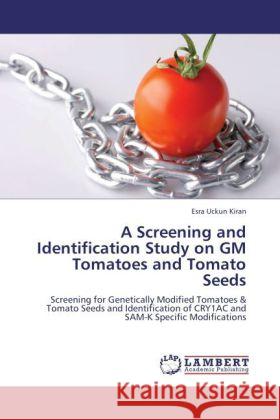A Screening and Identification Study on GM Tomatoes and Tomato Seeds » książka
A Screening and Identification Study on GM Tomatoes and Tomato Seeds
ISBN-13: 9783848406234 / Angielski / Miękka / 160 str.
Modern biotechnological techniques have rapidly expanded the horizons of plant breeding and crop improvement. By the time GM crops began to find more place in supermarket shelves as food, detection and labelling of these crops gain much more importance. A number of GMOs have been approved for human consumption but concerns over safety persist in the public. Morever, depending on the region of the world, people often have different attitudes to food. Genetically modified foods can evoke a negative response among consumers, especially in the absence of good communication on risk assessment efforts and cost/benefit evaluations. In order to improve a positive impact on consumers, it is necessary to give true and satisfactory information. Regulations on GM foods and labelling are inevitable to provide confidence among consumers. Morever, labelling of genetically modified crops may provide an opportunity to the consumers whether they prefer to buy a GM food or not. This study was conducted to analyze tomato and tomato seeds, purchased from different food markets randomly, for the presence of genetic modification by using PCR methods as they allow more specific detection.











